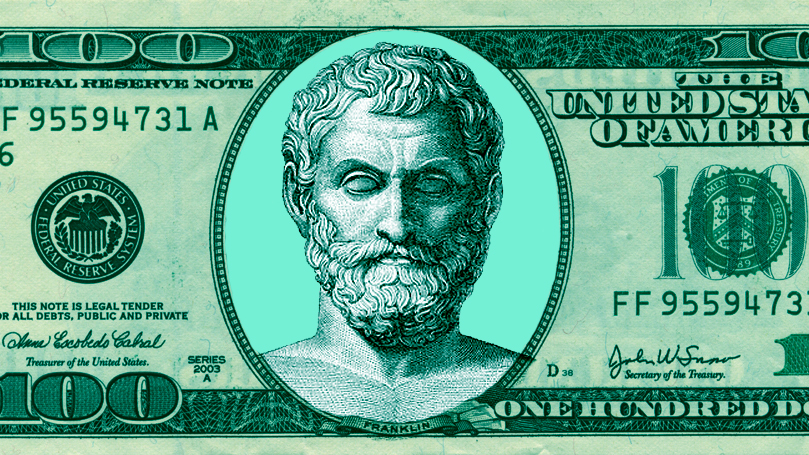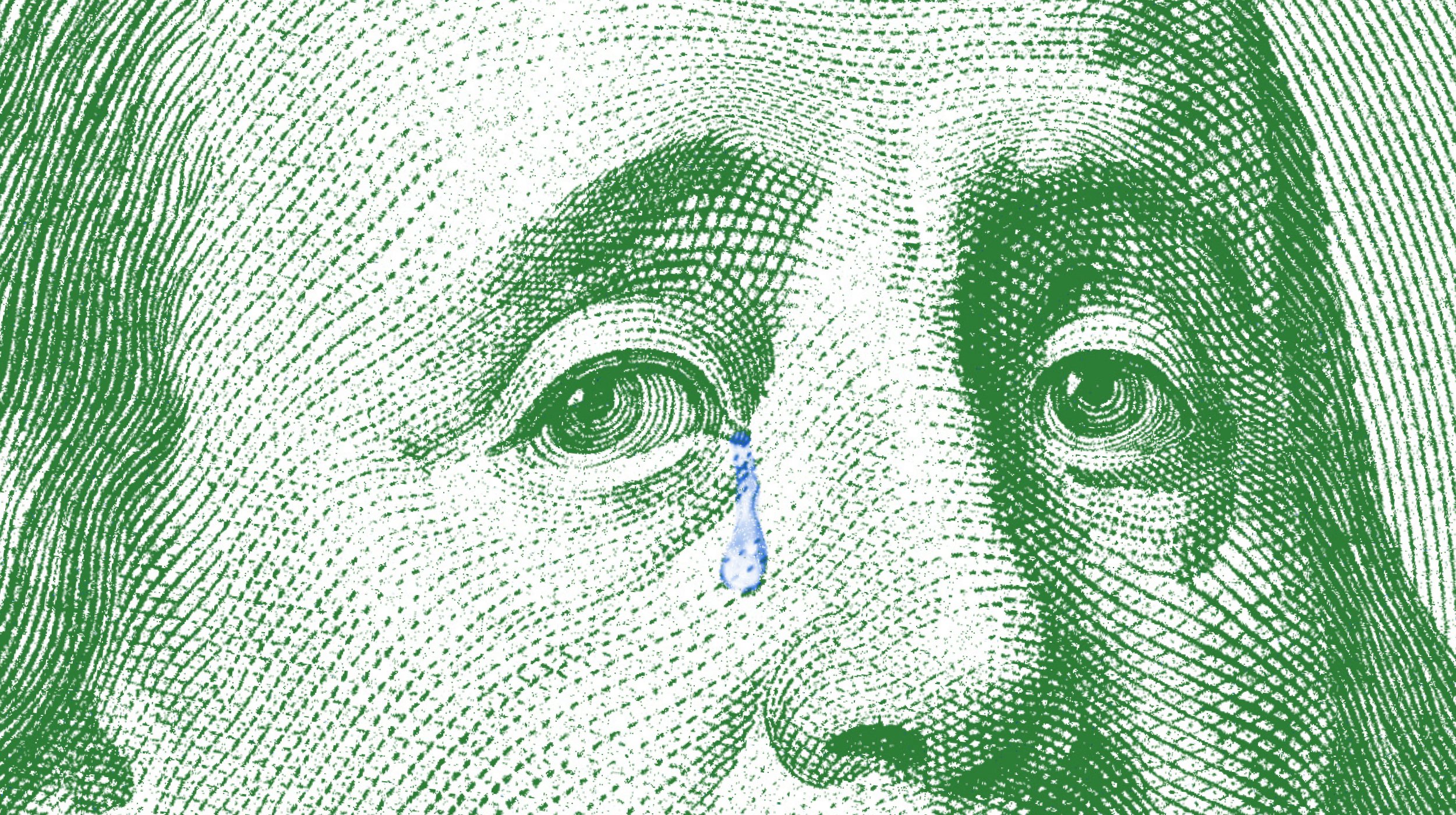Being frugal sounds boring — until it makes you wealthy

- 60% of Americans say the pandemic forever changed how they budget and spend money, according to a survey commissioned by Slickdeals.
- Frugality is trending. TikTok and Instagram have no shortage of frugal influencers.
- This can be good for your finances and the environment. After all, frugality often goes hand in hand with sustainability.
Frugality isn’t easy to practice in today’s consumer-driven economy. But there is a growing frugality trend sparked by a mix of factors, namely the pandemic, inflation, and fears of a recession. Being frugal isn’t the same thing as being cheap — and watching your spending doesn’t mean you’re financially struggling.
Instead, it’s about living within (or below) your means. It’s possible to do this without negatively impacting your quality of life. And it can also be good for the environment.
The growing frugal trend
The frugal trend is picking up steam. According to JungleScout’s Q3 2022 Consumer Trends Report, nearly three-quarters of respondents have either reduced or maintained their overall spending levels. Numbers like these suggest that folks are being more mindful about their spending, and with good reason. In addition to helping people adapt to tough economic conditions, curbing overspending frees up money that can go toward other things, like financial goals or regular living expenses.
Meanwhile, the negative connotations once associated with frugality are becoming less prevalent. A recent poll conducted by Ollie’s, a discount retailer, found that more than half of respondents are proud to be labeled as bargain hunters.
Social media platforms have become a home for frugal living influencers posting money-saving hacks and amassing hundreds of thousands of followers. Being frugal is a trend that extends beyond the U.S. China’s youth, for example, are embracing it as a way of making the best out of economic uncertainty.
Tips for being more frugal (and how it can help you save)
1. Ditch single-use plastics
Doing away with disposable water bottles, plastic sandwich baggies, and other one-time plastic culprits can help keep your spending in check. Consider investing in reusable water bottles and silicone storage bags. There is an upfront cost, but you’ll quickly recoup that money since you’ll no longer need to purchase disposable plastics. At the time of this writing, a six-pack of reusable sandwich bags costs about $13.
2. Switch to reusable paper towels
A survey conducted by OnePoll and bidet company Tushy found that the average American spends over $10,500 on paper towels in their lifetime. Reusable brands are often made of wood pulp, bamboo or cotton and are washable. No more waste. There is again an upfront cost involved, but it’s usually more cost-effective over the long haul. You could spend around $65 to get going with a durable brand.
3. Consider other reusable kitchen products
This can include sponges, cupcake liners, coffee pods, coffee filters, and much more. Look around your kitchen and think about the disposable items you use on a regular basis.
4. Meal plan and buy food in bulk
Restaurant meals and takeout orders can add up. In 2021, the average household spent $3,030 on food away from home, according to the Bureau of Labor Statistics. That’s over $250 a month. Take some time to plan meals around items you already have and whatever’s on sale at your local markets. Buying in bulk can help you save too, especially if you split the cost (and your haul) with friends or family.
5. Reduce your drive time
Gas prices are finally coming down a bit, but the average price per gallon is still around $3.45 at the time of this writing. Joining a carpool, riding your bike, walking, or opting for public transportation can all be good for your wallet. The latter will vary in price depending on where you live. Calculate how much you spend on gas per month, then run a price comparison to see whether it’s worth it.
6. Consider slower shipping options
The one-day shipping option from Amazon and other companies comes with hidden costs: less efficient trips for the delivery vehicle. From a fuel perspective, it is usually more efficient to deliver items at a slower pace because the shipper can determine what other deliveries need to be made in that area and then lump a larger batch of items together in the same vehicle.
How being frugal can improve your quality of life
Spending less not only helps you stick to a budget, but it can also improve your day-to-day life. Here’s a closer look at why:
- You’ll likely have more money to put toward financial goals: That can include paying down debt, building your savings, buying a home, saving for retirement, or starting a business.
- It can free up more fun money: If money is tight, you might have little left over each month for discretionary spending. Going frugal can give your budget a little breathing room. The goal is to pay all your bills, fund your financial goals, and have a little something left for fun. It’s good to remember that restricting your spending too much may leave you feeling deprived and resentful if you’re cutting out things that are meaningful to you. For example, if you love getting takeout and it makes your life easier, eliminating it altogether may be too harsh. So instead consider reducing it to once a week. The goal isn’t to live a spartan lifestyle, but rather to strike a balance so that you’re saving money without negatively impacting your quality of life.
How being frugal can help the environment
Dialing down your spending can also be good for the environment. Textile waste, which is a significant problem in the U.S., is a great example. Every year 11 million metric tons of textile waste goes into landfills. Thrift shopping and buying secondhand clothes reduce this kind of waste by redirecting clothing items to your closet.
Being frugal can help reduce plastic pollution as well. Cutting out single-use plastics is a simple way to save money and protect the earth. Over 800 wildlife species have been demonstrably harmed by plastic pollution. Many ingest plastics or become entangled in them. Researchers at Stanford University estimate that whales eat up to 10 million pieces of microplastic per day. When it comes to transportation, opting to ride your bike or carpool reduces the number of vehicles on the road and brings down greenhouse gas emissions.
Of course, this is not to say that everyday consumers are primarily responsible for climate change, biodiversity loss, and pollution. A chemical company that illegally dumps harmful substances known as PFAS (often called “forever chemicals”) into a river will harm the environment far more than a person who uses plastic instead of paper straws.
But tweaking your spending habits could ultimately have a ripple effect that benefits the world in a small but meaningful way. And you’ll likely feel good doing it. Most consumers would call that a win-win.





